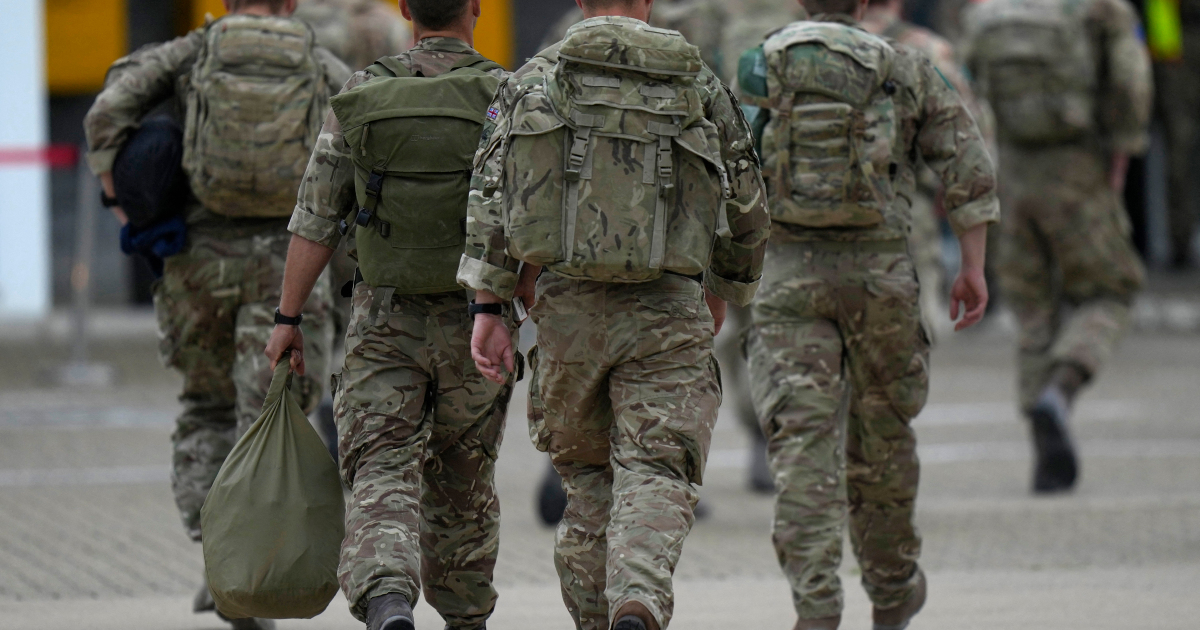The last British flight evacuating civilians from Afghanistan has left Kabul, bringing to an end an operation that has airlifted almost 15,000 Afghan and British citizens in the two weeks since the Taliban took control.
Britain’s armed forces are now preparing to leave and will take small numbers of Afghan citizens with them on remaining flights this weekend, a defence ministry spokesperson said on Saturday.
“It’s time to close this phase of the operation down. But we haven’t forgotten the people who still need to leave, and we will do everything we can to help them,” Britain’s ambassador to Afghanistan, Laurie Bristow, said in a statement filmed on the tarmac at Kabul’s main airport.
Some British troops have already departed, and a British military transport plane carrying others landed at an airbase in southern England on Saturday.
British Defence Secretary Ben Wallace said on Friday that Britain was entering the final hours of its evacuation and would process only people who were already inside Kabul airport.
Britain was at Washington’s side from the start of a US-led invasion of Afghanistan that overthrew the then-ruling Taliban in punishment for harbouring the al-Qaeda fighters behind the September 11, 2001 attacks. More than 450 British armed forces personnel died during 20 years of deployment in the country.
Wallace said on Friday that he estimated between 800 and 1,100 Afghans who had worked with Britain and were eligible to leave the country would not make it through.
General Nick Carter, the head of Britain’s armed forces, told Al Jazeera that hundreds of people entitled to resettle in the UK would be left behind.
“It’s absolutely heartbreaking that we can’t bring everybody out,” he said.
“Personally, I’ve probably had over a 100 messages from different Afghans who I know … many of those, friends of mine, won’t make it out.”
Foreign nationals from around the world and citizens of Afghanistan who worked with them have sought to leave the country since the Taliban’s swift takeover this month in the wake of the departure of most US forces. More than 100,000 have been evacuated through Kabul airport, according to US officials.
The desperate, chaotic exodus turned deadly on Thursday, when a suicide bomber struck crowds gathered near the airport. The attack killed at least 175 people, Taliban sources told Al Jazeera. Thirteen US service members were among the dead.
At least two British citizens and the child of another Briton were also among the people killed.
 Members of the British armed forces’ 16 Air Assault Brigade disembark an RAF Voyager aircraft after landing at Brize Norton, UK, August 28, 2021 [Alastair Grant/ Pool via Reuters]
Members of the British armed forces’ 16 Air Assault Brigade disembark an RAF Voyager aircraft after landing at Brize Norton, UK, August 28, 2021 [Alastair Grant/ Pool via Reuters]In London, Afghans reached Afghanistan and Central Asian Association advice centre, desperate for news of friends and relatives.
Saraj Deen Safi said he had been unable to make contact with relatives, who were near Kabul airport, since Thursday’s bomb attack. He said he hoped they would be able to reach a safe European country, but he felt “despaired” at the lack of news.
While the UK has evacuated thousands of former interpreters and others who worked with British forces, the advice programme coordinator for the London association, Shabnam Nasimi, said she was “devastated” for many others.
“There are many others who indirectly supported our work there to bring about democracy and free speech and a much better society for Afghanistan,” Nasimi said.
“And the fact we haven’t recognised that and now abandoned those people. And these include journalists and judges, for instance, who are directly going to be targeted by the Taliban.”
“The future of these individuals is very bleak,” she said.
British Prime Minister Boris Johnson promised on Friday to “shift heaven and earth” to get more people from Afghanistan to Britain by other means, though no concrete details have been offered.
UK officials hope some people may be able to leave Afghanistan overland for neighbouring countries, where their claims to come to the UK could be processed. That will depend on diplomatic coordination and cooperation — not least from the Taliban.
Prime Minister Johnson discussed the Afghanistan situation with German Chancellor Angela Merkel on Saturday, when the two leaders agreed that the Group of Seven (G7) nations should take a common approach to dealing with any future Taliban government.
“The Prime Minister stressed that any recognition and engagement with the Taliban must be conditional on them allowing safe passage for those who want to leave the country and respecting human rights,” Johnson’s office said.
